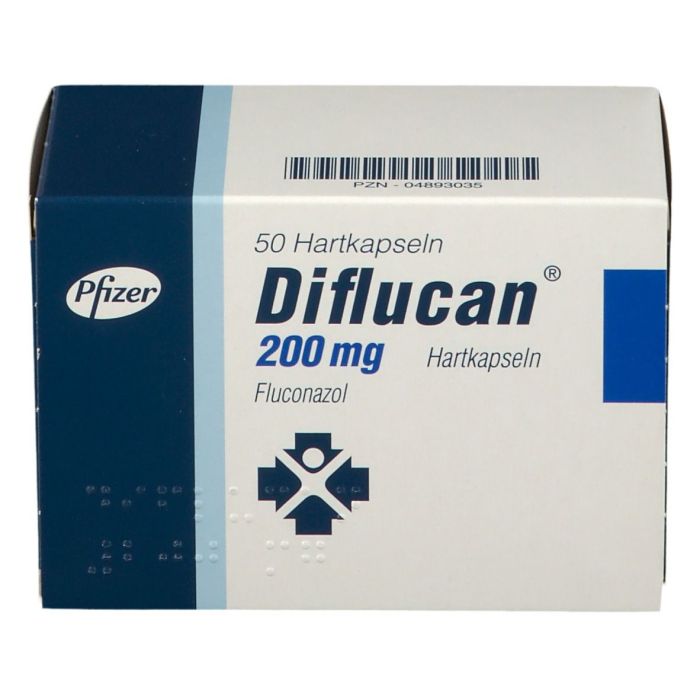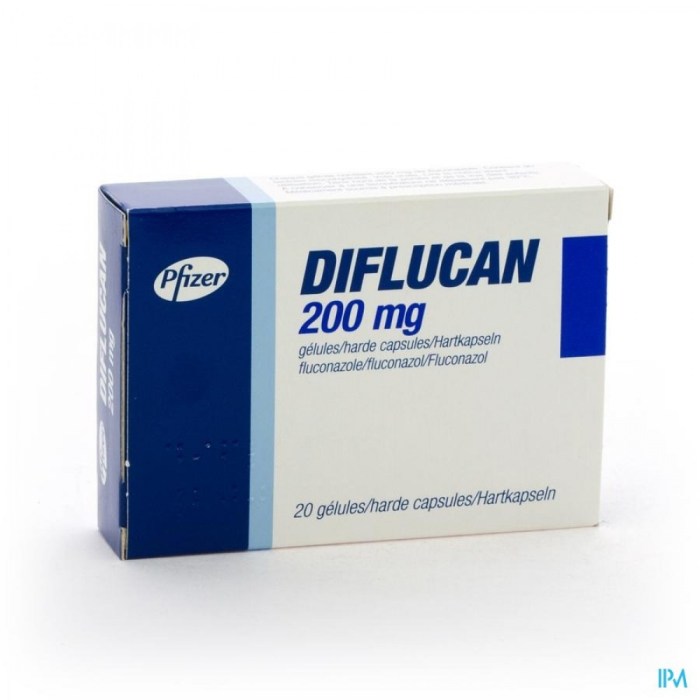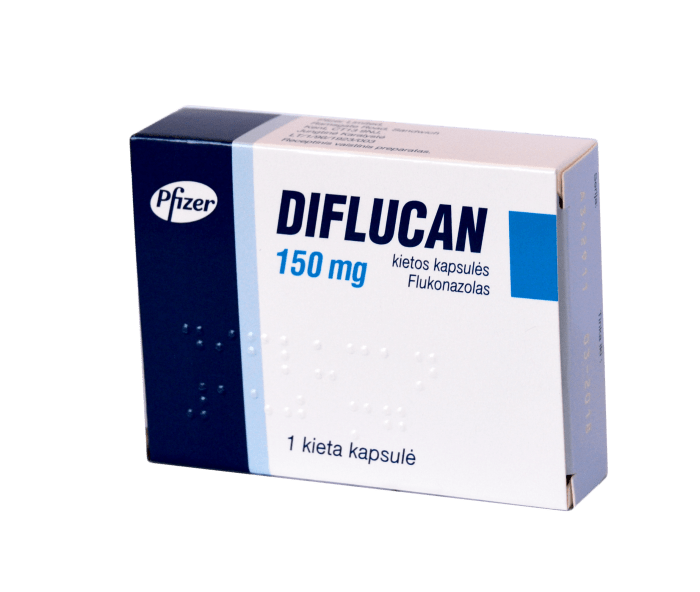Diflucan, also known as fluconazole, is a powerful antifungal medication that has revolutionized the treatment of various fungal infections. This medication works by targeting a specific enzyme essential for fungal cell wall synthesis, effectively inhibiting their growth and spread. Diflucan has proven to be effective against a wide range of fungal infections, including yeast infections, dermatophytosis, and systemic mycoses, making it a cornerstone in the fight against these often-debilitating conditions.
Its versatility extends to various patient populations, including immunocompromised individuals, those with underlying medical conditions, and even pregnant and breastfeeding women, making it a crucial tool in the healthcare arsenal. This comprehensive guide will delve into the intricate workings of Diflucan, exploring its mechanism of action, indications, dosage, potential adverse effects, and drug interactions, ultimately providing a comprehensive understanding of this essential antifungal medication.
Diflucan

Diflucan, also known as fluconazole, is a widely prescribed antifungal medication used to treat a variety of fungal infections. It is a highly effective and well-tolerated drug, making it a valuable tool in the management of fungal diseases.
Chemical Name, Structure, and Classification
Diflucan’s chemical name is fluconazole, and its molecular formula is C13H12F2N6O. Structurally, it is a triazole antifungal agent, characterized by a triazole ring system. This ring structure is crucial for its antifungal activity, as it allows fluconazole to bind to and inhibit the target enzyme, 14-α-demethylase. Fluconazole belongs to the class of systemic antifungal agents, meaning it can be absorbed into the bloodstream and reach various parts of the body.
Mechanism of Action
Diflucan’s antifungal activity stems from its ability to inhibit the synthesis of ergosterol, a vital component of fungal cell membranes. Ergosterol is essential for maintaining the structural integrity and permeability of fungal cell membranes. By inhibiting ergosterol synthesis, fluconazole disrupts the normal functioning of fungal cells, leading to their death.
Fluconazole achieves this inhibition by binding to and blocking the enzyme 14-α-demethylase, which is involved in the final step of ergosterol biosynthesis. This enzyme is found in the fungal cell membrane and is responsible for converting lanosterol into ergosterol. By binding to 14-α-demethylase, fluconazole prevents the enzyme from carrying out its catalytic function, thereby halting ergosterol production.
Fluconazole’s selective inhibition of fungal 14-α-demethylase is a key factor in its effectiveness as an antifungal agent.
Pharmacokinetic Properties
Fluconazole exhibits favorable pharmacokinetic properties, allowing it to reach therapeutic concentrations in various body fluids and tissues.
Absorption, Distribution, Metabolism, and Elimination
- Absorption: Fluconazole is readily absorbed after oral administration, reaching peak plasma concentrations within 0.5 to 1.5 hours. Food does not significantly affect its absorption.
- Distribution: Fluconazole is widely distributed throughout the body, including cerebrospinal fluid, skin, nails, and internal organs. It penetrates well into most tissues, allowing it to reach the site of fungal infections.
- Metabolism: Fluconazole undergoes minimal metabolism in the liver.
- Elimination: It is primarily eliminated unchanged in the urine. The half-life of fluconazole is relatively long, ranging from 25 to 30 hours. This long half-life allows for once-daily dosing, simplifying treatment regimens.
Indications for Diflucan Use
Diflucan, also known as fluconazole, is a broad-spectrum antifungal medication that is effective against a wide range of fungal infections. It is commonly prescribed for both superficial and systemic fungal infections, making it a versatile treatment option.
Fungal Infections Treated by Diflucan
Diflucan is indicated for the treatment of various fungal infections, including:
- Yeast Infections (Candidiasis): Diflucan is highly effective in treating yeast infections, which are caused by the fungus Candida albicans. These infections can occur in various parts of the body, including the mouth (oral thrush), vagina (vaginal yeast infection), and skin (cutaneous candidiasis).
- Dermatophytosis: This group of fungal infections affects the skin, hair, and nails. Diflucan is used to treat dermatophytosis, including conditions like athlete’s foot, ringworm, and jock itch.
- Systemic Mycoses: Diflucan is also effective against systemic fungal infections, which are infections that spread throughout the body. These infections can be life-threatening, and Diflucan is used to treat conditions such as cryptococcal meningitis, coccidioidomycosis, and histoplasmosis.
Diflucan Use in Specific Patient Populations
Diflucan is often used in specific patient populations who are more susceptible to fungal infections, including:
- Immunocompromised Individuals: People with weakened immune systems, such as those with HIV/AIDS, organ transplant recipients, or those undergoing chemotherapy, are at increased risk of fungal infections. Diflucan is frequently used to prevent and treat fungal infections in these individuals.
- Patients with Underlying Medical Conditions: Certain medical conditions, such as diabetes, can increase the risk of fungal infections. Diflucan may be used to treat or prevent fungal infections in patients with these conditions.
Dosage and Administration of Diflucan

Diflucan (fluconazole) is available in various forms, including oral capsules and tablets, intravenous solutions, and topical creams. The specific dosage and administration method will depend on the type of fungal infection being treated.
Dosage and Frequency
The recommended dosage of Diflucan varies depending on the type and severity of the fungal infection. Your doctor will determine the appropriate dosage based on your individual needs.
- For vaginal yeast infections, a single oral dose of 150 mg is usually effective. For recurrent infections, a lower dose of 100 mg may be prescribed daily for 6 to 14 days.
- For oral thrush (candidiasis), the typical dosage is 100 mg once daily for 14 days. In severe cases, a higher dose or longer duration of treatment may be necessary.
- For systemic fungal infections, such as cryptococcal meningitis, the dosage can range from 400 mg to 800 mg daily, depending on the severity of the infection.
Routes of Administration, Diflucan
Diflucan can be administered through several routes, depending on the type of infection being treated:
- Oral: This is the most common route of administration. Oral capsules and tablets are easy to take and are absorbed well by the body.
- Intravenous: For severe or systemic fungal infections, Diflucan may be administered intravenously. This allows for faster absorption and higher concentrations of the drug in the bloodstream.
- Topical: For localized fungal infections, such as skin infections, Diflucan is available as a topical cream. It is applied directly to the affected area.
Administration Guidelines
- With or Without Food: Diflucan can be taken with or without food. However, taking it with food may help to reduce the risk of stomach upset.
- Time Intervals: Diflucan is usually taken once daily. Your doctor will advise you on the specific time intervals for taking the medication.
- Duration of Treatment: The duration of treatment with Diflucan will vary depending on the type of fungal infection and the severity of the infection. It is important to complete the full course of treatment as prescribed by your doctor, even if you start to feel better.
Adverse Effects of Diflucan
Diflucan, like most medications, can cause side effects. These side effects can range from mild and temporary to serious and potentially life-threatening. It is important to be aware of the possible adverse effects of Diflucan and to seek medical attention if you experience any concerning symptoms.
Common Adverse Effects
Common adverse effects of Diflucan are generally mild and usually resolve on their own. However, it is important to be aware of them and to consult your doctor if they become bothersome or persistent.
- Nausea: A feeling of sickness in the stomach, often accompanied by a desire to vomit.
- Vomiting: The forceful expulsion of stomach contents through the mouth.
- Headache: Pain in the head, which can be mild or severe.
- Diarrhea: Loose, watery stools, often more frequent than usual.
Serious Adverse Effects
While less common, Diflucan can also cause serious adverse effects. These effects require immediate medical attention.
- Liver damage: Diflucan can rarely cause liver damage, which can be serious and potentially life-threatening. Symptoms of liver damage may include jaundice (yellowing of the skin and eyes), dark urine, fatigue, and abdominal pain.
- Allergic reactions: Some people may experience allergic reactions to Diflucan. These reactions can range from mild (hives, itching) to severe (anaphylaxis, a life-threatening allergic reaction). Symptoms of a severe allergic reaction may include difficulty breathing, swelling of the face, lips, tongue, or throat, and a rapid heartbeat.
- Drug interactions: Diflucan can interact with other medications, potentially increasing the risk of side effects or reducing the effectiveness of other drugs. It is important to tell your doctor about all the medications you are taking, including over-the-counter medications and herbal supplements, before starting Diflucan.
Adverse Effect Management
| Adverse Effect | Severity | Frequency | Management |
|---|---|---|---|
| Nausea | Mild | Common | May resolve on its own. If bothersome, consult your doctor. |
| Vomiting | Mild to Moderate | Less common | May resolve on its own. If persistent or severe, consult your doctor. |
| Headache | Mild to Moderate | Common | Over-the-counter pain relievers may help. If severe or persistent, consult your doctor. |
| Diarrhea | Mild to Moderate | Less common | May resolve on its own. If persistent or severe, consult your doctor. |
| Liver damage | Severe | Rare | Immediate medical attention is required. |
| Allergic reactions | Mild to Severe | Rare | Immediate medical attention is required. |
| Drug interactions | Variable | Variable | Inform your doctor about all medications you are taking. |
Drug Interactions with Diflucan

Diflucan (fluconazole) can interact with other medications, potentially affecting its efficacy or increasing the risk of adverse effects. These interactions can occur due to various mechanisms, including competition for metabolism, alteration of enzyme activity, and changes in drug absorption or elimination. Understanding these interactions is crucial for safe and effective use of Diflucan.
Mechanisms of Drug Interactions
Drug interactions with Diflucan can occur due to several mechanisms:
- Competition for Metabolism: Diflucan is primarily metabolized by the cytochrome P450 (CYP) enzyme system, particularly CYP3A4. When Diflucan is co-administered with other drugs that are also metabolized by CYP3A4, they compete for the same enzyme, potentially leading to increased blood levels of either drug. This can enhance the therapeutic effect or increase the risk of adverse effects.
- Inhibition of Enzyme Activity: Diflucan can inhibit the activity of CYP3A4, slowing down the metabolism of other drugs that rely on this enzyme. This can result in higher blood levels of these drugs, increasing their therapeutic effects or toxicity.
- Alteration of Drug Absorption: Diflucan can affect the absorption of other medications by interfering with the mechanisms that transport drugs across the intestinal wall.
- Changes in Drug Elimination: Diflucan can alter the elimination of other drugs by affecting their renal excretion or biliary excretion.
Medications that Interact with Diflucan
Several medications are known to interact with Diflucan, affecting its efficacy or increasing the risk of adverse effects. These interactions can be categorized based on their potential effects:
Increased Efficacy or Toxicity
- Drugs Metabolized by CYP3A4: Co-administration of Diflucan with drugs metabolized by CYP3A4, such as terfenadine, astemizole, cisapride, pimozide, quinidine, bepridil, and ergot alkaloids, can increase their blood levels, potentially leading to serious adverse effects, including cardiac arrhythmias. Therefore, co-administration of these drugs with Diflucan is generally contraindicated.
- Warfarin: Diflucan can increase the anticoagulant effect of warfarin, potentially leading to increased bleeding risk. Close monitoring of the INR (international normalized ratio) is recommended when Diflucan is used concurrently with warfarin.
- Theophylline: Diflucan can increase theophylline levels, potentially leading to toxicity. Monitoring of theophylline levels is recommended when Diflucan is used concurrently with theophylline.
- Cyclosporine: Diflucan can increase cyclosporine levels, potentially leading to nephrotoxicity. Monitoring of cyclosporine levels is recommended when Diflucan is used concurrently with cyclosporine.
Decreased Efficacy
- Oral Contraceptives: Diflucan can decrease the efficacy of oral contraceptives, potentially leading to unplanned pregnancy. Alternative methods of contraception may be considered during Diflucan therapy.
Diflucan’s impact on antifungal treatment is undeniable, offering a safe and effective solution for a diverse range of fungal infections. Understanding its mechanism of action, indications, and potential risks is crucial for healthcare professionals and patients alike. While Diflucan has proven to be a valuable asset in combating fungal infections, ongoing research continues to explore new formulations, applications, and even potential replacements with enhanced properties. The future of antifungal treatment holds exciting possibilities, and Diflucan will undoubtedly continue to play a vital role in shaping the landscape of fungal infection management.
Diflucan, a common antifungal medication, is often prescribed for yeast infections. While Diflucan targets fungal infections, it’s important to note that it’s not effective against bacterial infections. For those seeking treatment for high cholesterol, a medication like fenofibrate might be prescribed. Remember, always consult with a healthcare professional before taking any medication, including Diflucan, to ensure it’s the right choice for your specific needs.